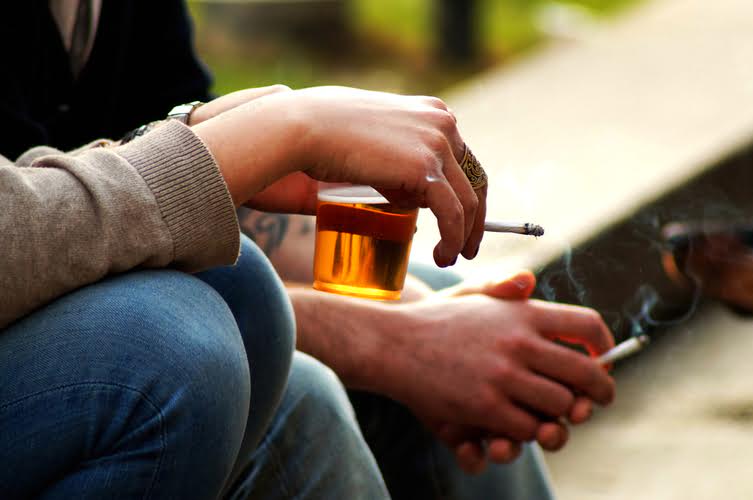For example, monoamine neurotransmitters (like serotonin and dopamine) regulate consciousness, cognition, attention and emotion. A person can usually tell when they are intoxicated, but it may be challenging to spot the signs in others. Alcohol can interfere with protective measures such as a person’s gag reflex. A high BAC can increase the risk of asphyxiation if a person vomits and does not have enough intact reflexes to clear their own airway. Ideally, a person should not https://ativanx.com/2019/07/04/finding-parallels-between-and-life-4/ drive after consuming alcohol until it is completely out of their system.

Getting Help For Alcoholism

Together with our caring professionals, you can help your loved ones turn their life around and make their old addiction their new success story. In the United States, people caught driving with a BAC of 0.08% or higher are arrested for driving under the influence. Support groups such as Alcoholics Anonymous (AA) and Self-Management And Recovery Training (SMART) are open to anyone with a substance use disorder. These programs organize your treatment session based on your schedule.
Alcohol in Your Body
- Services include medical care, behavioral therapy, and support groups, along with other customized therapies.
- Nonetheless, drinking alcohol for this purpose is not recommended, especially when other safer, more effective preventive measures are available.
- If you think someone is experiencing alcohol poisoning, seek emergency medical attention immediately.
Usually, this is only required in moderate and severe cases. Over time, excessive alcohol use can cause liver health problems such as cirrhosis. Chronic https://www.zel-veter.ru/news/view/275 drinking can even cause dementia by causing a dangerous vitamin B-1 (thiamine) deficiency. The experience of alcohol intoxication is different for each person.

When is Alcohol Intoxication a Sign of Alcoholism?
BetterHelp offers affordable mental health care via phone, video, or live-chat. If you are concerned about someone with these symptoms, you should seek immediate medical attention. Someone in this stage usually needs immediate medical help to survive. People who are left to “sleep it off” may end up experiencing hazardously slowed breathing or complete respiratory arrest, or they may aspirate on their own vomit.
Some research suggests that people at risk of alcohol use disorder are less easily intoxicated than people who are not problem drinkers. That is, their brains are less sensitive to the effects of alcohol. Blood relatives of people with alcohol use disorder may have this trait. When the individual does not consume alcohol regularly, they may experience withdrawal symptoms and intense cravings. Over time, excessive drinking can lead http://www.novostiit.net/page/25?s=C%2B%2B to mental health problems, such as depression and anxiety. Alcohol abuse can increase your risk for some cancers as well as severe, and potentially permanent, brain damage.
- This bleeding is a particular problem because the damaged liver does not produce enough of the substances that make blood clot.
- This stage of intoxication is marked by emotional outbursts and a major loss of coordination.
- In the first phase of detoxification and rehabilitation, alcohol is completely withdrawn, and any withdrawal symptoms are treated.
It’s a myth that a person can recover from alcohol intoxication by sleeping, taking a cold shower, going for a walk, or drinking black coffee or caffeine. In fact, doing these things can put an intoxicated person at greater risk of injury and death. When people drink alcohol, it passes through the stomach and into the small intestine.
- People with this disorder become agitated, confused, and demented.
- If people who drink continually for a period of time suddenly stop drinking, withdrawal symptoms are likely.
- Alcohol reaches your brain in only five minutes, and starts to affect you within 10 minutes.
What are the Symptoms of Alcohol Intoxication?
In patients who remained abstinent, the proportion was comparable to the figure for the control group, at only 15%. When a person consumes alcohol, the full effects may take some time to become apparent. Delirium tremens (DTs) is the most serious group of withdrawal symptoms. Rather, it appears about 48 to 72 hours after the drinking stops. Later, they become increasingly confused, do not sleep well, have frightening nightmares, sweat excessively, and become very depressed. The episode may escalate to include fleeting hallucinations, illusions that arouse fear and restlessness, and disorientation with visual hallucinations that may be terrifying.
Sobriety, or subclinical intoxication (0.01 – 0.05 BAC)
Intoxication is a state that occurs when the affected person has consumed enough alcohol or drugs to alter their mood and abilities. Mental or physical impairments can include slurred speech, difficulty walking, and disorientation. Intoxication also can be detected by Breathalyzer and blood testing.

